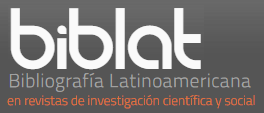Therapeutic itinerary and playing in the care process for children with diabetes: experiences of the family caregiver
DOI:
https://doi.org/10.5433/1679-0367.2022v43n2p263Keywords:
Access to Health Services, Attitude towards Health, Family, Games and ToysAbstract
Introduction: type 1 Diabetes Mellitus is one of the most prevalent chronic diseases in childhood. The professional monitoring of children with type 1 Diabetes Mellitus needs to be integrative and consider the stages of child development, their experiences, and appropriate forms of communication and play strategies.
Objectives: to describe the experiences and use of recreational resources, as well as to identify the therapeutic itinerary followed by the caregiver of the child with type 1 Diabetes Mellitus.
Methodology: descriptive research with a qualitative approach carried out with eight family caregivers of children aged between three and 12 years with diabetes Mellitus type 1 in a municipality in the Northeast of Santa Catarina and who are followed up at the specialty outpatient clinic of a children's hospital. Data were collected between July and August of 2021, through interviews on virtual platforms and analyzed according to thematic analysis.
Results: four thematic categories were created from the most significant sense units: perception of signs and symptoms and discovery of the disease; the pilgrimage in the health services in search of answers; the non-use of recreational strategies for health education by health professionals; then everything goes back to being sweet again.
Conclusion: the therapeutic itinerary of the caregiver of the child with type 1 Diabetes Mellitus shows a pilgrimage in health services, lack of communication between health professionals and a fragile bond with primary care. The networks that were covered by caregivers and children based on the signs/symptoms of the pathology were: Children's Hospital; Basic health Unit; School Pharmacy; Insulin Distribution Center; Municipal Laboratory and Supplementary Network Services. It was noticeable throughout the research the lack of use of recreational resources with children with Diabetes Mellitus in the city and the lack of description about the health education process by the nurse professional, being still portrayed the biological model.
Downloads
References
American Diabetes Association. Diagnóstico e classificação de diabetes mellitus. Diabetes Care. 2010 Jan; 33(Suppl 1): S62–S69. Doi: https://doi.org/10.2337%2Fdc10-S062
American Diabetes Association. Standards of Medical Care in Diabetes-2022 Abridged for Primary Care Providers. Clin Diabetes 2022; 40(1):10-38. Doi: https://doi.org/10.2337/cd22-as01.
American Diabetes Association. Standards of Medical Care in Diabetes-2021 Abridged for Primary Care Providers. Clin Diabetes. 2020;39(1):14-43. Doi: https://doi.org/10.2337/cd21-as01.
Brasil. Lei nº 14.158 de 02 de junho de 2021. Dispõe sobre o valor do salário-mínimo a vigorar a partir de 1º de janeiro de 2021 [Internet]. Brasília, DF; 2021.[citado 2021 Jul 19]. Disponível em: http://www.normaslegais.com.br/legislacao/lei-14158-2021.htm.
Cabral ALLV, Martinez-Hemáez A, Andrade ELG, Cherchiglia ML. Itinerários terapêuticos: o estado da arte da produção científica no Brasil. Ciênc. Saúde coletiva. 2011;16:4433-4442. Doi https://doi.org/10.1590/S1413-81232011001200016.
Costa DTL, Veríssimo MLR, Toriyama ATM, Sigaud CHS. O brincar na assistência de enfermagem à criança – revisão integrativa. Rev Soc Bras Enferm Ped. 2016;16(1):36-43. Doi: http://dx.doi.org/10.31508/1676-3793201600005.
Demétrio F, Santana ER, Pereira-Santos M. O Itinerário Terapêutico no Brasil: revisão sistemática e metassíntese a partir das concepções negativas e positivas de saúde. Saúde Debate. 2019; 43(spe7): 204-221. Doi: https://doi.org/10.1590/0103-11042019S716
Finco M, Bertoncini JH. Itinerário terapêutico e vivência dos familiares e adolescentes com diabetes mellitus tipo 1. Rev Bras Promoc Saúde. 2016;29(3):371-9. Doi: https://doi.org/10.5020/18061230.2016.p371
Fontanella BJB, Ricas J, Turato ER. Amostragem por saturação em pesquisas qualitativas em saúde: contribuições teóricas. Cad Saude Publica. 2008 Jan;24(1):17-27. doi: 10.1590/s0102-311x2008000100003.
International Diabetes Federation. IDF Diabetes Atlas. 10th ed. [Internet]. Brussels, Bel: IDF; 2021. [cited 2021 Mar 20]. Available from: https://www.diabetesatlas.org.
La Banca RO, Laffel LMB, Volkening LK, Sparapani VC, Carvalho EC, Nascimento LC. Brincadeiras terapêuticas para ensinar auto injeção de insulina para crianças com diabetes tipo 1: um estudo piloto em um país em desenvolvimento. J Spec Pediatr Nurs. 2021;26(1):e12309. https://doi.org/10.1111/jspn.12309.
Minayo MCS. O desafio do conhecimento: pesquisa qualitativa em saúde. 14. ed. São Paulo: Hucitec; 2014.
Ministério da Saúde (BR). Agenda de Prioridades de Pesquisa do Ministério da Saúde. Brasília: MS; 2018. [citado 2021 fev 15]. Disponível em: http://bvsms.saude.gov.br/bvs/publicacoes/agenda_prioridades_pesquisa_ms.pdf.
Ministério da Saúde (BR). Estratégias para o cuidado da pessoa com doença crônica: diabetes mellitus [Internet]. Brasília, 2013 [citado 2021 Mar 20]. Available from: http://bvsms.saude.gov.br/bvs/publicacoes/estrategias_cuidado_pessoa_diabetes_mellitus_cab36.pdf.
Pedrinho LR, Shibukawa BMC, Rissi GP, Uema RTB, Merino MFGL, Higarashi IH. Brinquedo terapêutico para crianças com Diabetes Mellitus tipo 1: intervenções no domicílio. Esc Anna Nery Rev Enferm, 2021;25(3):e20200278. Doi: https://doi.org/10.1590/2177-9465-EAN-2020-0278.
Pennafort VPS, Queiroz MVO, Gomes ILV, Rocha MFF. Instructional therapeutic toy in the culture care of the child with diabetes type 1. Rev Bras Enferm. 2018;71:1334-42. [Thematic Issue: Health of woman and child] Doi: http://dx.doi.org/10.1590/0034-7167-2017-0260.
Queiroz MVO, Brito LMMC, Pennafort VPS, Bezerra FSM. Sensibilizando a criança com diabetes para o cuidado de si: Contribuição à prática educativa. Esc Anna Nery Rev Enferm. 2016;20(2):337-343. Doi: https://doi.org/10.5935/1414-8145.20160046.
Sociedade Brasileira de Diabetes. Diagnóstico e tratamento do diabetes Tipo 1. [Internet]. São Paulo: Clannad; 2012 [citado 2021 fev 15]. Disponível em: https://www.diabetes.org.br/publico/images/pdf/posicionamento-diagnostico-tratamento-dm1-final.pdf.
Sparapani VC, Nascimento LC. Recursos pedagógicos para educação de crianças com diabetes mellitus tipo 1. Sau & Transf Soc. [Internet]. 2010. [citado 2021 fev 15];1(1):113-119. Disponível em: http://incubadora.periodicos.ufsc.br/index.php/saudeetransformacao/article/view/416/460.
Tong A, Sainsbury P, Craig J. Consolidated criteria for reporting qualitative research (COREQ): a 32-item checklist for interviews and focus groups. Int J Qual Health Care. 2007 Dec;19(6):349-57. doi: https://doi.org/10.1093/intqhc/mzm042.
Usher-Smith JA, Thompson M, Ercole A, Walter FM. Variation between countries in the frequency of diabetic ketoacidosis at first presentation of type 1 diabetes in children: a systematic review. Diabetologia. 2012 Nov;55(11):2878-94. Doi: https://doi.org/10.1007/s00125-012-2690-2.
Venancio JMP, La Banca RO, Ribeiro CA. Benefícios da participação em um acampamento no autocuidado de crianças e adolescentes com diabetes: percepção das mães. Esc Anna Nery Rev Enferm. 2017;21(1):e20170004. Doi: https://doi.org/10.5935/1414-8145.20170
Downloads
Published
How to Cite
Issue
Section
License
Copyright (c) 2023 Semina: Ciências Biológicas e da Saúde

This work is licensed under a Creative Commons Attribution-NonCommercial 4.0 International License.
adopts the CC-BY-NC license for its publications, the copyright being held by the author, in cases of republication we recommend that authors indicate first publication in this journal.
This license allows you to copy and redistribute the material in any medium or format, remix, transform and develop the material, as long as it is not for commercial purposes. And due credit must be given to the creator.
The opinions expressed by the authors of the articles are their sole responsibility.
The magazine reserves the right to make normative, orthographic and grammatical changes to the originals in order to maintain the cultured standard of the language and the credibility of the vehicle. However, it will respect the writing style of the authors. Changes, corrections or suggestions of a conceptual nature will be sent to the authors when necessary.
This Journal is licensed with a license Creative Commons Assignment-NonCommercial 4.0 International.

















